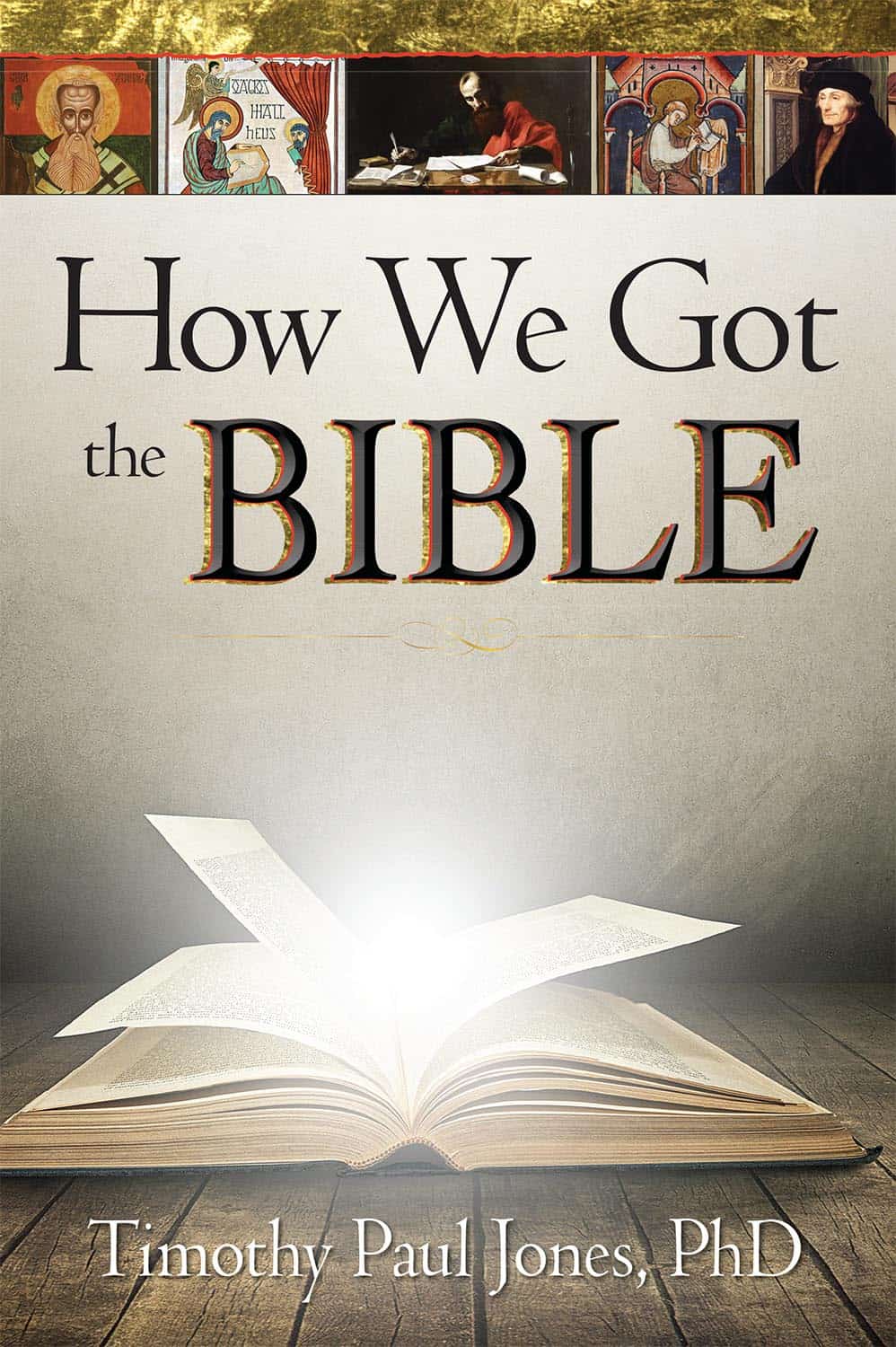Perhaps at one point or another, you have found yourself gazing down at a leather bound copy of a large book with small print titled The Holy Bible and asking the question, “Why did God decide to leave us with this?” This God-inspired book wasn’t an afterthought or an accident! Eternal eons before God created darkness and light, God had already decided that he would reveal his kingdom not only through spoken words but also through written words. The Bible that you possess today is the perfect product of this eternal plan (Psalm 119:89). The purpose of my new book and video series How We Got the Bible is to deepen your trust in the Bible by helping you to understand how God’s written revelation made the journey from the mind of God to the sixty-six texts in your Bible today.
Here’s a quick and simple overview of what’s so special about the Bible, from How We Got the Bible.
Where the Bible Came From
God is revealing his truth to all people at every moment through his creation (Romans 1:18–20)—but God also chooses to reveal himself in particular ways to particular people. Beginning at least as early as Moses, God began to unveil his truth in written propositions. These written words were so precious that no one was ever to alter them (Deuteronomy 4:2; 12:32).
In the centuries that followed God’s initial written revelation, inspired men and women continued to write “as they were moved by the Holy Spirit” (2 Peter 1:21). Some chronicled historical events. Others penned poems and proverbs and songs. Still others wrote prophecies that called people to return to God’s reign over their lives.
But these books possessed a purpose far greater than merely recording God’s work in the lives of ancient people!
Throughout all those centuries of revelation, God was inspiring the words of Scripture in such a way that the writers were revealing a greater message than they themselves could clearly see.2 Every written word of the Old Testament highlighted humanity’s need for a living Word who was yet to come (John 5:39). Taken together, all the prophecies of the Old Testament testified in perfect harmony that it was only through faith in a future Messiah that anyone’s sins could be forgiven (Acts 10:43). This Messiah would be God’s greatest revelation, the living Word of God sent to earth in human flesh (John 1:1–18).
The Word Became Flesh
When it was time to send this Word to earth, God announced his arrival through priests and prophets, angels and starry signs splashed across the eastern sky (Matthew 1:20–21; 2:2; Luke 1:11–18, 26–38, 67–80; 2:8–15, 25–38; 7:24–28). The living Word of God grew into adulthood and sacrificed his life on a cross, embracing God’s wrath in place of everyone who would trust in him. After he rose to life on the third day, this same Word filled his people’s hearts with his Spirit and empowered them to proclaim his kingdom throughout the world (Matthew 28:18–20; John 14:16–26; Acts 1:8).
But God’s revelation didn’t stop with the living Word or even with his presence in the lives of his people!
As the message of Jesus multiplied throughout the world, God began to inspire new writings that preserved the truth about Jesus and revealed how to live in his kingdom. During the first decades that followed the resurrection of Jesus, Christians memorized eyewitness accounts about Jesus and wrote letters that applied Jesus’ teachings in the lives of his followers. Soon, these spoken testimonies about Jesus began to be brought together with the teachings of Jesus to produce four “Gospels” written by Matthew, Mark, Luke, and John.
Christians throughout the first-century churches treated texts connected to apostles and eyewitnesses of Jesus as inspired guides for their lives. Since every authoritative text in the churches had to be linked somehow to an eyewitness, written revelations ended as the first-century eyewitnesses and their associates passed away.
Nearly 2,000 years later, these God-inspired revelations from ancient Israelites and Christ-commissioned eyewitnesses remain the main means that God uses to unveil his truth to humanity. Jesus is the one Word of God, but we also rightly refer to these writings—now gathered together into the book we know as “the Bible”—as “the Word of God.” We refer to the Bible as God’s Word because this one book and only this book bears perfect witness to God’s living Word, Jesus Christ.

